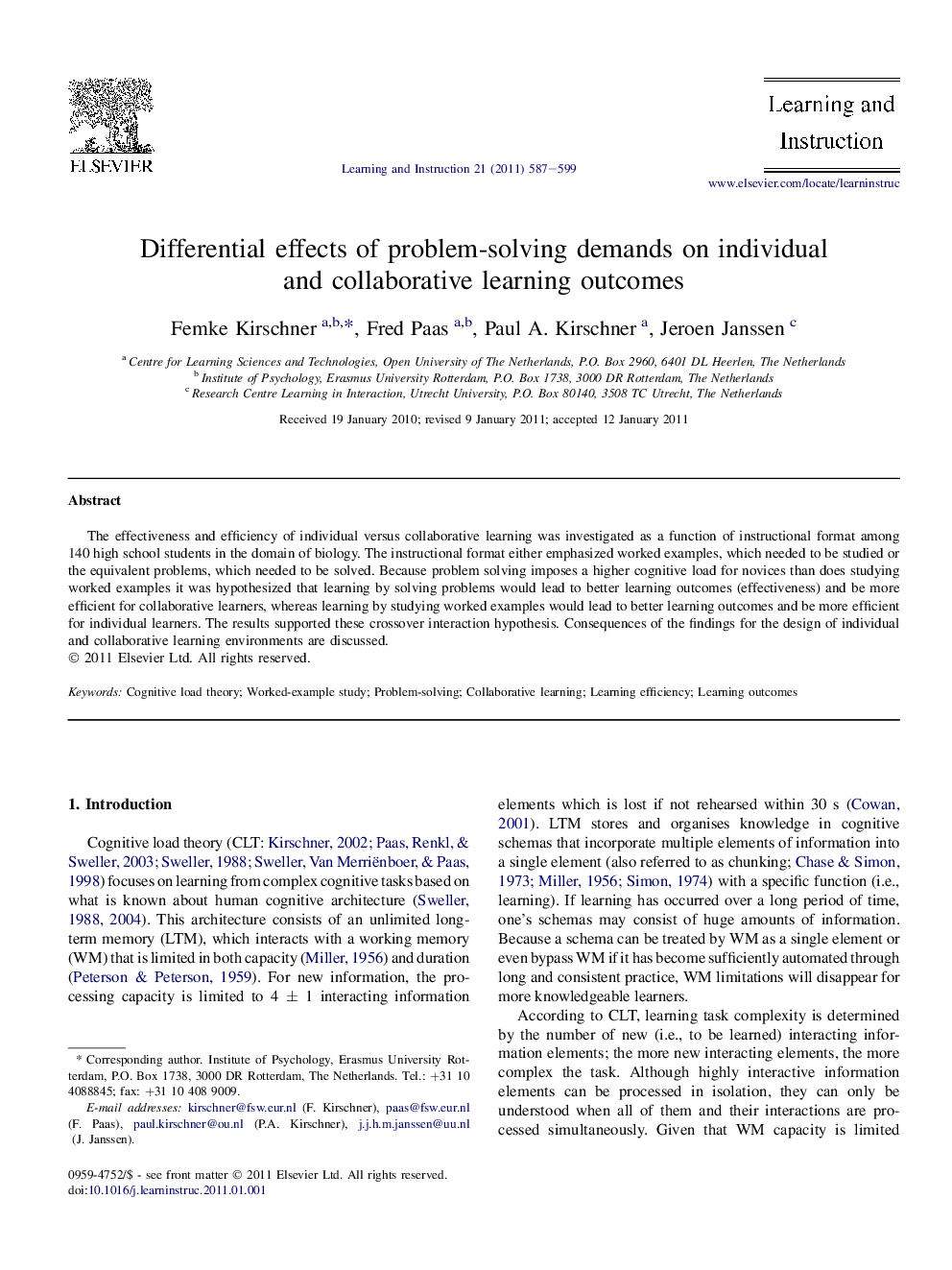| کد مقاله | کد نشریه | سال انتشار | مقاله انگلیسی | نسخه تمام متن |
|---|---|---|---|---|
| 365688 | 621217 | 2011 | 13 صفحه PDF | دانلود رایگان |

The effectiveness and efficiency of individual versus collaborative learning was investigated as a function of instructional format among 140 high school students in the domain of biology. The instructional format either emphasized worked examples, which needed to be studied or the equivalent problems, which needed to be solved. Because problem solving imposes a higher cognitive load for novices than does studying worked examples it was hypothesized that learning by solving problems would lead to better learning outcomes (effectiveness) and be more efficient for collaborative learners, whereas learning by studying worked examples would lead to better learning outcomes and be more efficient for individual learners. The results supported these crossover interaction hypothesis. Consequences of the findings for the design of individual and collaborative learning environments are discussed.
► In groups multiple working memories can create a collective working space.
► Group learning is effective and efficient with tasks imposing a high cognitive load.
► Collaborative learning is effective and efficient when solving problems.
► Individual learning is effective and efficient when studying worked examples.
Journal: Learning and Instruction - Volume 21, Issue 4, August 2011, Pages 587–599